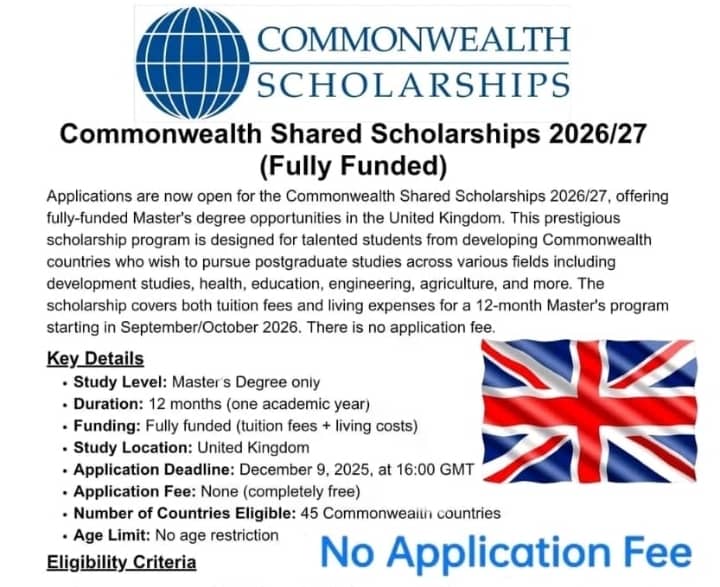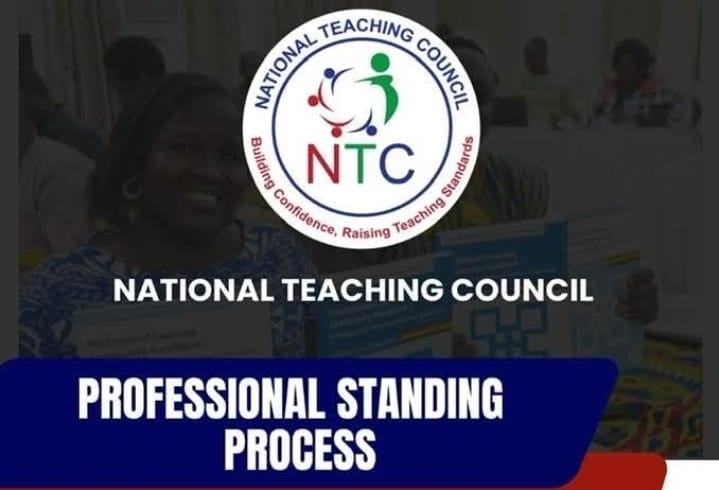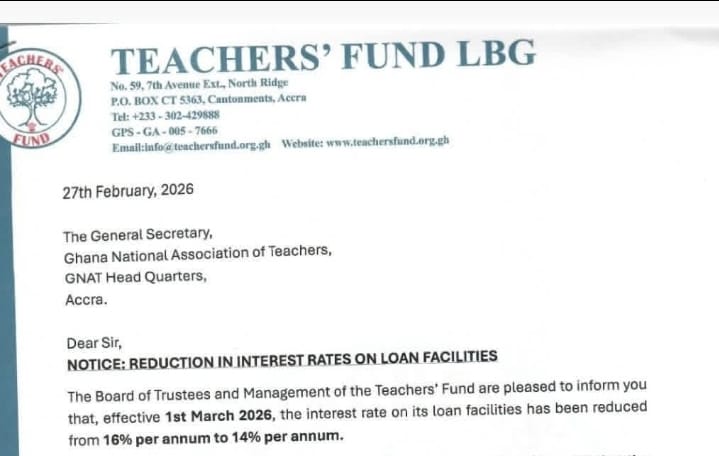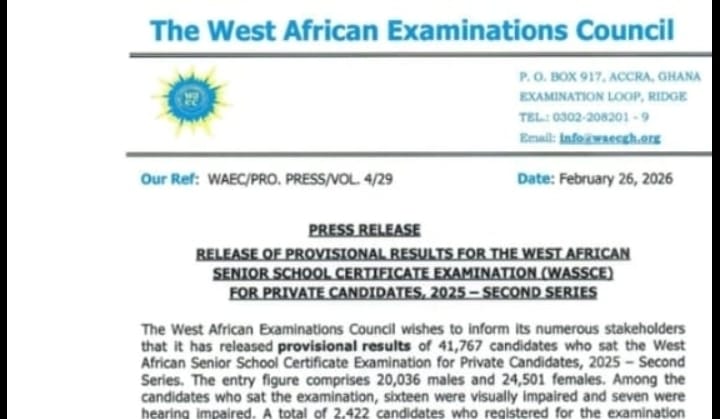
Ultimate Guide to Applying for the Commonwealth Shared Scholarship for 2025/2026: Everything You Need to Know as an Applicant
Welcome to this comprehensive guide on the Commonwealth Shared Scholarship (CSS) program! If you’re a talented individual from a low- or middle-income Commonwealth country dreaming of pursuing a Master’s degree in the UK but worried about the costs, this scholarship could be your gateway. Funded by the UK Foreign, Commonwealth and Development Office (FCDO) and jointly supported by participating UK universities, the CSS aims to equip scholars with the knowledge and skills needed to drive sustainable development in their home countries.
In this detailed guide, we’ll dive deep into every aspect of the scholarship based on official information from the Commonwealth Scholarship Commission (CSC). Whether you’re checking eligibility, preparing your application, or understanding what happens after selection, we’ve got you covered. This content is structured to help you navigate the process step by step, ensuring you know exactly what you must have and do to succeed.
- Nursing Scholarship from University of Toronto to all International students-Apply now
- University of Auckland Scholarships 2026: International Student Excellence Scholarship – Fully Funded Opportunities for Global Talent
- Nottingham Trent University — International Scholarships (2026) Academic Year
- How to Write a Winning Scholarship Statement of Purpose (SOP): The Ultimate Guide
Follow us on WhatsApp for more updates: CLICK HERE
Seekers Consult
Contact Us for Your Study Abroad Journey
We search for schools and check available scholarships for you
Contact: 0550414552 / 0362297079

Loan for government workers
Transcript Application
English Proficiency
Recommendation letter
Project work/thesis for undergraduate, master’s, and PhD students.
Apply for Affidavit, Gazette instantly
Passport and Visa Applications
All other Internet Services
What is the Commonwealth Shared Scholarship?
The Commonwealth Shared Scholarship is a prestigious award designed for candidates from eligible low- and middle-income Commonwealth countries who demonstrate exceptional potential but lack the financial means to study in the UK without support. It fully funds one-year taught Master’s programs (not research degrees or undergraduate courses) at participating UK universities.
The scheme focuses on sustainable development, aligning with six key CSC development themes (though not explicitly listed in the source, they typically include areas like science and technology for development, strengthening health systems, promoting global prosperity, and more—check the CSC website for the latest). By supporting scholars who commit to returning home and applying their skills, the CSS contributes to long-term positive change in eligible countries.
Key highlights:
- Joint Funding: The CSC covers major costs like tuition (up to £22,500), airfares, study grants, and more, while the host university provides stipends, warm clothing allowances, and other living expenses.
- Duration: Strictly one year, non-extendable.
- Return Requirement: Scholars must return to their home country within one month of completing the program to ensure knowledge transfer.
- Impact Focus: The program prioritizes courses with direct relevance to development challenges in your home country, such as addressing economic, social, or environmental issues.
This scholarship isn’t just about education—it’s about building a network of leaders who can make a real difference. Over the years, alumni have gone on to implement development initiatives, influence policy, and drive research in their fields.
Who is Eligible? Key Criteria You Must Meet
Eligibility is strict to ensure the scholarship reaches those who need it most and can maximize its impact. As an applicant, you must tick all these boxes—there’s no flexibility, such as substituting work experience for academic qualifications. Here’s everything you need to qualify:
Academic Requirements
- Hold a first degree (Bachelor’s) at first-class or upper second-class level (2:1 equivalent).
- If your first degree is at lower second-class level (2:2), you must also have a relevant Master’s degree.
- Your qualifications must be complete by the start of the academic year (September/October 2026 for the 2026/2027 cycle).
- No pre-sessional English courses are funded; you must meet the UK Visas and Immigration (UKVI) English language requirements and be fluent enough to start your course immediately.
Personal and Residency Criteria
- Be a citizen or refugee of an eligible Commonwealth country, or a British Protected Person.
- Be permanently resident in an eligible Commonwealth country.
- Not have studied or worked for one year or more in a high-income country (as defined by the DAC list of ODA recipients—non-eligible countries include the UK, USA, Australia, etc.).
- Be unable to afford to study in the UK without this scholarship (your host university will verify this during the selection process).
- Be available to start your academic studies in the UK by September/October 2026.
- Commit to returning to your home country within one month of the scholarship’s end date.
Eligible Countries
You must be from one of the following low- and middle-income Commonwealth countries (based on the 2025 DAC list; confirm updates on the OECD website):
- Bangladesh
- Belize
- Botswana
- Cameroon
- Dominica
- Eswatini
- Fiji
- Gabon
- The Gambia
- Ghana
- Grenada
- Guyana
- India
- Jamaica
- Kenya
- Kiribati
- Lesotho
- Malawi
- Malaysia
- Maldives
- Mauritius
- Montserrat
- Mozambique
- Namibia
- Nauru
- Nigeria
- Pakistan
- Papua New Guinea
- Rwanda
- Saint Helena
- Saint Lucia
- Saint Vincent and the Grenadines
- Samoa
- Sierra Leone
- Solomon Islands
- South Africa
- Sri Lanka
- Tanzania
- Togo
- Tonga
- Tuvalu
- Uganda
- Vanuatu
- Zambia
Note: The CSC encourages geographical diversity, so no more than 50% of nominations from a single university can come from high-application countries like Ghana, India, Nigeria, or Pakistan.
Additional Considerations
- Diversity and Inclusion: The CSC promotes equal opportunities and non-discrimination. Women are especially encouraged to apply, and support is available for candidates with disabilities (see the CSC’s disability support statement for details).
- Age and Experience: There’s no upper age limit, but you should demonstrate how your studies will contribute to development in your home country. Strong applicants often have a clear plan for post-study impact.
If you don’t meet any criterion, your application will be ineligible—double-check against the latest CSC guidelines, as minor changes can occur.
The Application Process: Step-by-Step Timeline and How to Apply
The CSS process involves two parallel applications: one to the CSC and one to your chosen UK university. Universities first bid for scholarships (bidding for 2026/2027 closed in 2025), and successful ones are notified by early November 2025. Here’s the applicant-focused timeline and steps:
Timeline for 2026/2027 Cycle
- University Notifications: Early November 2025—successful universities learn their approved courses and scholarship allocations.
- Candidate Applications Open: Early November 2025 (shortly after university notifications).
- Applications Close: Mid-December 2025.
- Nominations and Selections: Universities nominate candidates by early 2026; final awards confirmed soon after.
- Program Start: September/October 2026.
Timelines are subject to confirmation—monitor the CSC website for exact dates.
Step 1: Choose Your Course and University
- Only approved courses from bidding universities are eligible. A list of eligible courses, including university contacts, will be published in November 2025.
- Courses must be one-year taught Master’s programs with strong development relevance (e.g., focusing on challenges in eligible countries, vocational skills, or sustainable impact). MBAs are rarely supported unless they have an exceptional development focus.
- Universities can bid for up to 8 courses, often specifying pathways or modules suited to CSS scholars.
- Tip: Research universities with a track record of hosting CSS scholars—they often have targeted recruitment in eligible countries and strong support systems.
Step 2: Apply to the University
- Submit a separate application for admission to your chosen course(s) via the university’s website or system (e.g., UCAS for some).
- Meet any additional university-specific criteria, such as interviews or portfolios.
- Universities assess your development interests, including professional, political, socio-cultural, economic, technological, and academic factors.
Step 3: Apply to the CSC
- Use the CSC’s online application form (available when applications open).
- Provide evidence of how your chosen course aligns with CSC development themes and your home country’s needs.
- Demonstrate your commitment to returning home and applying your skills (e.g., through personal statements or references).
Step 4: Nomination and Selection
- Universities nominate shortlisted candidates via the CSC system.
- The CSC makes final selections based on academic merit, development potential, and diversity.
- Anti-fraud measures ensure transparency—familiarize yourself with the CSC’s anti-fraud policy.
Required Documents and What You Must Have
Prepare these in advance to avoid last-minute stress:
- Academic Transcripts and Certificates: Proof of your first degree (and Master’s if applicable) with grades equivalent to UK 2:1 or higher.
- English Language Proficiency: IELTS, TOEFL, or equivalent scores meeting UKVI standards (no funding for tests or pre-sessional courses).
- Personal Statement: Detail your background, career goals, and how the scholarship fits your development impact plan. Emphasize relevance to your home country.
- References: At least two academic or professional referees who can speak to your potential.
- Passport or ID: Proof of citizenship/refugee status and residency.
- Financial Declaration: Evidence that you cannot afford UK study without aid (e.g., income statements; university verifies).
- Course-Specific Documents: Any required by the university, like CVs, research proposals, or portfolios.
- Disability Support Forms: If applicable, declare needs for accommodations (CSC provides allowances).
All documents must be authentic—fraud leads to disqualification.
Follow us on WhatsApp for more updates: CLICK HERE
Seekers Consult
Contact Us for Your Study Abroad Journey
We search for schools and check available scholarships for you
Contact: 0550414552 / 0362297079

Loan for government workers
Transcript Application
English Proficiency
Recommendation letter
Project work/thesis for undergraduate, master’s, and PhD students.
Apply for Affidavit, Gazette instantly
Passport and Visa Applications
All other Internet Services
Useful official links (start here)
-
CSC Apply / CSC Central (start application): https://cscuk.fcdo.gov.uk/apply/ . CSC UK
-
Commonwealth Shared Scholarships — How to apply & advice for applicants: https://cscuk.fcdo.gov.uk/scholarships/commonwealth-shared-scholarships-applications/ . CSC UK
-
Eligible courses (current intake list & development themes): https://cscuk.fcdo.gov.uk/commonwealth-shared-scholarships-eligible-courses/ . CSC UK
-
University bidding guidance & development statement advice (PDF for universities; useful to understand what nominators look for): (University bidding guidance PDF). CSC UK
Guidance for Commonwealth Shared Scholars / Scholar handbook: (post-award guidance and useful checklists for scholars). CSC UK+1
- Nursing Scholarship from University of Toronto to all International students-Apply now
- University of Auckland Scholarships 2026: International Student Excellence Scholarship – Fully Funded Opportunities for Global Talent
- Nottingham Trent University — International Scholarships (2026) Academic Year
- How to Write a Winning Scholarship Statement of Purpose (SOP): The Ultimate Guide
What the Scholarship Covers: Financial Benefits and Obligations
As a fully funded award, the CSS ensures you focus on studies without financial worry. Here’s the breakdown:
CSC Contributions
- Full tuition fees (capped at £22,500).
- Economy airfares to and from the UK (per CSC policy; no family travel).
- Approved study-related grants (e.g., books, equipment).
- TB testing if required for your visa.
- Excess baggage allowance on return.
- Disability allowances as needed.
- Child allowances for eligible single parents (£622/month for the first child under 16, £154/month for the second/third).
University Contributions
- Monthly stipend: £1,452 (or £1,781 if in London) to cover living costs.
- Warm clothing allowance: £563.
- Accommodation: Universities may provide free options, including family-friendly if needed.
Scholars pay nothing toward the university’s share—any attempt to charge you could result in repayment demands or program exclusion.
Obligations
- Tenure: Complete the one-year program; no extensions.
- Return Home: Mandatory within one month—failure could affect future CSC opportunities.
- Deferral: Only possible if pursuing a fully funded three-year PhD in the UK afterward (requires university agreement and CSC approval; no Graduate visa eligibility).
- Branding and Reporting: Acknowledge the scholarship in publications and participate in evaluations.
Support from the University : What to Expect for Your Welfare
Host universities are responsible for your well-being, including:
- Paying living allowances promptly.
- Providing pre-arrival info, orientation, and ongoing support (e.g., academic advising, IT access, welfare services).
- Targeted assistance for CSS scholars, such as disability accommodations or family support.
- Tracking your progress and post-graduation destinations to measure impact.
Choose universities with strong policies for international students, especially those with partnerships in eligible countries.
For a Strong Application: Standing Out as a Scholar
To boost your chances:
- Align with Development Themes: Show how your course addresses specific issues in your country (e.g., via case studies or personal experiences).
- Demonstrate Impact Potential: Provide examples of past contributions and future plans—universities value scholars who can apply knowledge at home.
- Target Recruitment: Apply to universities preferring candidates from your region or with similar profiles.
- Diversity Edge: If you’re a woman, from an underrepresented group, or have a disability, highlight how the scholarship promotes inclusion.
- Avoid Common Pitfalls: Don’t submit generic statements—tailor everything to CSC goals. Ensure completeness and authenticity.
Past successful scholars often have strong alumni networks, so research case studies from previous recipients.
Follow us on WhatsApp for more updates: CLICK HERE
Seekers Consult
Contact Us for Your Study Abroad Journey
We search for schools and check available scholarships for you
Contact: 0550414552 / 0362297079

Loan for government workers
Transcript Application
English Proficiency
Recommendation letter
Project work/thesis for undergraduate, master’s, and PhD students.
Apply for Affidavit, Gazette instantly
Passport and Visa Applications
All other Internet Services
Potential Challenges and How to Overcome Them
- Competitive Nature: With limited spots (universities bid for up to 10, but often get fewer), focus on quality over quantity in applications.
- Visa and Logistics: Start visa processes early; CSC provides guidance.
- Post-Study Return: Plan your career back home to fulfill the commitment.
- Changes in Criteria: Always verify the latest info on the CSC website, as details (e.g., from August 2025) may evolve.
Ultimate Guide to the Commonwealth Shared Scholarships Application Form: A Step-by-Step Breakdown
Welcome to this in-depth guide on the Commonwealth Shared Scholarships (CSS) application form! If you’re an applicant from an eligible low- or middle-income Commonwealth country aiming for a fully funded Master’s degree in the UK, mastering this form is crucial. The CSS, administered by the Commonwealth Scholarship Commission (CSC), targets individuals committed to sustainable development in their home countries. This blog post is based on the official template application form, providing a comprehensive walkthrough of every section, including required fields, word limits, tips for completion, and what you need to prepare.
The form is divided into tabs: Details, Academic, Professional Background, Reference, Development Impact, Career Plans, Proposed Study in the UK, Personal Statement, Checklist and Confirm, Equality and Diversity, Attachments, and Summary. It’s an online system where you can save and continue, with mandatory fields marked by asterisks (*). Always ensure your responses align with CSC’s development themes and demonstrate your inability to fund UK studies independently.
Prepare in advance: Gather academic transcripts, references, passports, and proof of eligibility. The form emphasizes authenticity any fraud leads to disqualification.
- Nursing Scholarship from University of Toronto to all International students-Apply now
- University of Auckland Scholarships 2026: International Student Excellence Scholarship – Fully Funded Opportunities for Global Talent
- Nottingham Trent University — International Scholarships (2026) Academic Year
- How to Write a Winning Scholarship Statement of Purpose (SOP): The Ultimate Guide
1. Details: Entering Your Personal Information
This initial section collects basic personal and contact details to verify your identity and eligibility. It’s straightforward but requires precision, as mismatches (e.g., with your passport) can cause issues.
Key Fields:
- Title*: Select from options like Mr., Mrs., Ms., etc.
- Given Names (as in your passport or official ID)*: Enter your first and middle names exactly as they appear.
- Preferred Name (if different): Optional; use if you go by a nickname.
- Last Name (as in your passport or official ID)*: Your surname.
- Date of Birth*: Format dd/mm/yyyy.
- Gender*: Select Male, Female, Non-binary, or Prefer not to say.
- Gender Self-Identification: Optional text field (up to 255 characters) for further description.
- Email ID*: Your primary email; ensure it’s active, as all communications come here.
- Country of which you are a Citizen or have Refugee Status*: Search and select from eligible countries (e.g., Ghana for the user).
- Other Nationality (if you are a dual national): Optional; select if applicable.
- UK Institution*: Select your chosen university from the list of participating ones.
- Course*: Select the approved CSS-eligible course.
- Academic Eligibility Check*: Confirm if you hold a first degree at upper second-class (2:1) level or equivalent, or a lower second-class (2:2) plus a relevant Master’s. Answer Yes/No. If No, you may not proceed, but you can agree to due diligence checks for verification.
Contact and Address Details:
- Contact Address*: Address Line 1-3, Town/City, State/Province/County, Postcode/Zip, Country, Mobile/Phone Number.
- Permanent Address (if different): Same fields as above.
NOTE: Use your passport for name consistency to avoid visa issues. If your address changes, update it promptly. Word limit: None here, but keep concise. What you need: Valid passport/ID, proof of citizenship/refugee status.
2. Academic: Detailing Your Qualifications and Achievements
This section showcases your academic background, which must meet the 2:1 equivalent standard. You can list up to 5 qualifications, starting with the most recent.
Qualification Fields (Repeated for Each):
- Institution*: Name of the university (add if not listed).
- Country*: Select the country.
- Date Attended From*: dd/mm/yyyy.
- Date Attended To: dd/mm/yyyy (or expected if ongoing).
- Subject*.
- Qualifications Awarded or Sought*: e.g., Bachelor’s, Master’s.
- Class of Award*: e.g., First Class, Upper Second.
- Date of Award: dd/mm/yyyy (or expected).
Additional Questions:
- University Education Outside Home Country: Explain any studies abroad (up to 100 words), including funding sources and differences from home education.
- Publications and Prizes: List up to 10 publications (name and DOI). Then, a text box for academic distinctions/pr prizes (up to 250 words).
Note: Prioritize relevant qualifications. If transcripts are in another language, prepare certified English translations. Strong applicants highlight awards tied to development impact. What you need: Transcripts, degree certificates, proof of grades.
3. Professional Background: Employment History
Highlight your work experience to demonstrate relevance to your proposed study and development goals. List up to 5 jobs, starting with the most recent.
General Fields:
- Sector*: e.g., Education, Health, Government.
- Area*: Specific field, or “Other” with details (up to 4000 characters).
Employment Fields (Repeated for Each):
- Employer Name.
- Job Title.
- Date From/To: dd/mm/yyyy.
- Country*.
- Main Responsibilities*: Up to 100 words per job; focus on skills gained and relevance to CSS themes.
NOTE: Emphasize roles in sustainable development, leadership, or community impact. If unemployed, explain gaps productively (e.g., volunteering). What you need: Employment letters or CV excerpts for verification.
4. References: Nominating Your Referees
Provide 3-4 referees who can attest to your academic/professional suitability. They should be recent and relevant.
Referee Fields (Repeated):
- Full Name*.
- Job Title*.
- Email Address*.
- Repeat Referee’s Email Address*.
- Relationship of the Referee to you*: e.g., Supervisor, Lecturer.
- Special: If you’ve studied in the UK, include a fourth referee from that experience.
NOTE: Choose referees who know you well (e.g., academic supervisor, employer). Inform them in advance—they’ll receive a request to submit references by deadline. CSC contacts them directly. What you need: Referees’ contact details; ensure they’re willing.
5. Development Impact: Linking Your Study to Sustainable Goals
This core section (4 parts, up to 200-250 words each) explains how your study contributes to CSC’s sustainable development themes. Select up to 3 goals.
Fields:
- First/Second/Third Sustainable Development Goal*: Choose from dropdown (e.g., No Poverty, Quality Education).
- Development Impact Part 1: How your proposed study relates to global/national/local development issues connected to your chosen theme (up to 200 words).
- Part 2: How you’ll apply new skills post-study, referencing innovation/knowledge application (up to 250 words).
- Part 3: Expected changes from your studies, including outcomes and timelines (up to 250 words).
- Part 4: How impact will be measured (indicators, evidence; up to 100 words).
NOTE: Use specific examples from your background. Align with UK’s FCDO priorities. Be realistic and quantifiable. What you need: Research on SDGs and your country’s needs.
6. Career Plans: Short- and Long-Term Objectives
Outline how the scholarship fits your career trajectory (up to 250 words each).
- Objectives During the Award: Skills expected and immediate plans post-return (up to 250 words).
- Career Plans in the 5 Years Following the Award: Medium-term goals (up to 250 words).
- Long-Term Career Plans: Overall vision (up to 250 words).
NOTE: Show commitment to returning home and contributing. Link to development impact. What you need: Clear career narrative.
Follow us on WhatsApp for more updates: CLICK HERE
Seekers Consult
Contact Us for Your Study Abroad Journey
We search for schools and check available scholarships for you
Contact: 0550414552 / 0362297079

Loan for government workers
Transcript Application
English Proficiency
Recommendation letter
Project work/thesis for undergraduate, master’s, and PhD students.
Apply for Affidavit, Gazette instantly
Passport and Visa Applications
All other Internet Services
7. Proposed Study in the UK: Course Details
Detail your chosen program.
- University Application Number (if known).
- Study Outline*: Short overview (125 words); no technical jargon.
- Detailed Plan of Study*: Why this course/university, relation to objectives (300 words).
- Keyword 1-3*: Summarizing your study.
NOTE: Research the course deeply. Explain uniqueness. What you need: Offer letter or application proof.
8. Personal Statement: Your Story and Leadership
- Personal Statement*: Overcome personal barriers (500 words).
- Voluntary and Leadership Experience*: Activities demonstrating leadership (500 words).
NOT: Focus on resilience, community impact. What you need: Examples from life/volunteering.
9. Checklist and Confirm: Declarations and Sources
- How You Found Out About CSC*: Select sources (e.g., University, Social Media).
- General Conditions/Selection Criteria*: Agree Yes.
- Due Diligence: Criminal convictions (Yes/No; explain if Yes, up to 200 words).
- Politically Exposed Person (PEP)*: Yes/No; explain (200 words).
- Funds*: Confirm inability to fund without scholarship.
- Living/Studying in High-Income Country: Yes/No; dates if Yes.
- Own Work*: Confirm originality.
- Privacy Notice: Agree.
Tips: Be honest—checks are rigorous. What you need: Self-assessment.
10. Equality and Diversity: Monitoring Information
Voluntary questions on residence, ethnicity, indigenous status, religion, marital status, children, caring responsibilities, disabilities (impairments list), family background (education/occupation).
NOTE: Answers help CSC promote diversity; not used for selection. What you need: Personal reflection.
11. Attachments: Uploading Documents
Upload merged PDFs (max 10MB each):
- Passport/ID.
- Transcripts.
- Degree Certificates.
- Offer Letters.
- References (if not provided directly).
NOTE: Scan clearly; English translations if needed. What you need: All listed docs.
12. Summary: Review and Submit
Review all sections; edit if needed. Submit once complete.
Useful official links (start here)
-
CSC Apply / CSC Central (start application): https://cscuk.fcdo.gov.uk/apply/ . CSC UK
-
Commonwealth Shared Scholarships — How to apply & advice for applicants: https://cscuk.fcdo.gov.uk/scholarships/commonwealth-shared-scholarships-applications/ . CSC UK
-
Eligible courses (current intake list & development themes): https://cscuk.fcdo.gov.uk/commonwealth-shared-scholarships-eligible-courses/ . CSC UK
-
University bidding guidance & development statement advice (PDF for universities; useful to understand what nominators look for): (University bidding guidance PDF). CSC UK
-
Guidance for Commonwealth Shared Scholars / Scholar handbook: (post-award guidance and useful checklists for scholars). CSC UK+1
Follow us on WhatsApp for more updates: CLICK HERE
Seekers Consult
Contact Us for Your Study Abroad Journey
We search for schools and check available scholarships for you
Contact: 0550414552 / 0362297079

Loan for government workers
Transcript Application
English Proficiency
Recommendation letter
Project work/thesis for undergraduate, master’s, and PhD students.
Apply for Affidavit, Gazette instantly
Passport and Visa Applications
All other Internet Services




